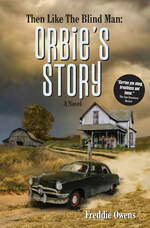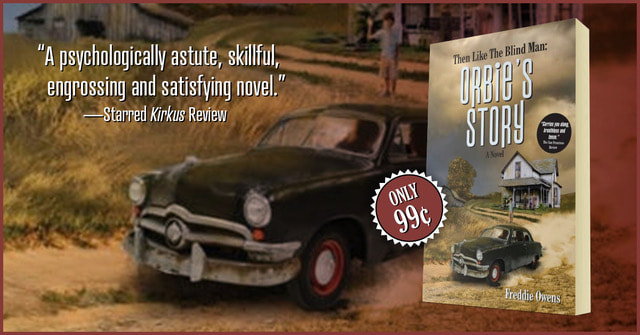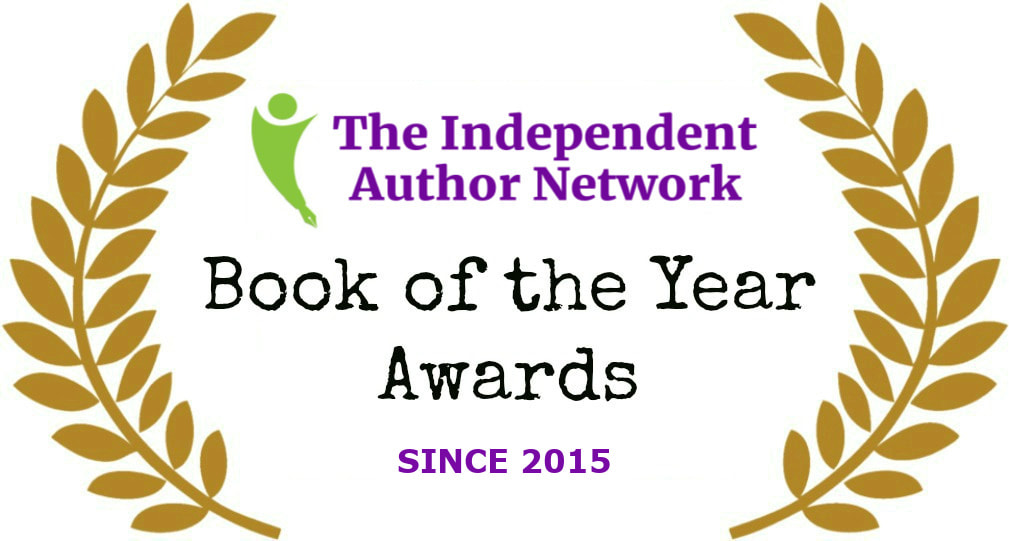Freddie Owens
Born in Kentucky I grew up in the Detroit suburbs. I would sometimes spend a week or two, once I spent six weeks, in Kentucky, staying with cousins or with my grandparents. It was an entirely different world for me, providing some of the best and worst times of my growing up years. I had a great time on a dairy farm with several of my cousins, milking cows, hoeing tobacco, running over the hills and up and down a creek that surrounded the big farm. I remember too, periods of abject boredom, sitting around my grandparent's old farm house with nothing to do but wander about the red clay yard or kill flies on my grandmother's screened-in back porch.
Certain aspects of these growing up years did come to light in the novel, Then Like The Blind Man: ORBIE'S STORY, knowingly at times, and at times spontaneously and distantly, as ghostly north-south structures, as composite personae, as moles and stains and tears and glistening rain and dark bottles of beer, rooms of cigarette smoke, haylofts and pigs.
Cormac McCarthy, Toni Morrison, James Baldwin, Pete Dexter, Carson McCullers, Raymond Carver, Flannery O'Conner and Joyce Carol Oats, to name a few, are among my literary heroes and heroines. Tone and style of these writers have influenced me in ways I'd be hard pressed to name, though the discerning reader might feel such influences as one word follows another and I attempt to "stab the heart with...force" (a la Isaac Babel) by placing my periods (hopefully, sometimes desperately)"...just at the right place."
Certain aspects of these growing up years did come to light in the novel, Then Like The Blind Man: ORBIE'S STORY, knowingly at times, and at times spontaneously and distantly, as ghostly north-south structures, as composite personae, as moles and stains and tears and glistening rain and dark bottles of beer, rooms of cigarette smoke, haylofts and pigs.
Cormac McCarthy, Toni Morrison, James Baldwin, Pete Dexter, Carson McCullers, Raymond Carver, Flannery O'Conner and Joyce Carol Oats, to name a few, are among my literary heroes and heroines. Tone and style of these writers have influenced me in ways I'd be hard pressed to name, though the discerning reader might feel such influences as one word follows another and I attempt to "stab the heart with...force" (a la Isaac Babel) by placing my periods (hopefully, sometimes desperately)"...just at the right place."
Then Like The Blind Man: ORBIE'S STORY
|
Historical Fiction
While fiction about the 1950s Civil Rights era is far from rare, few capture the period and struggles from the perspective of a white child. At nine, Orbie seems to live his life along a precipice. He is burdened with an overabundance of difficult choices which would be beyond the capacities of most boys his age--but Orbie is about to discover he's no ordinary boy. In the debut novel from artist and poet Freddie Owens, nothing is ever precisely what it seems: prejudice is not innate, the dead aren't really dead, and those in positions of power cannot be trusted. Then Like The Blind Man: ORBIE'S STORY is an electrifying porthole to the South of the '50s, where, though inane prejudice may have dominated, kindness and justice also had a place. Orbie's sharecropping grandparents, by defying convention with unnerving grace, become founts of colloquial wisdom whose appeal is impossible to resist, and the Orbie they nurture--the best version of a boy who may otherwise have been lost--is someone the reader comes to love. Michelle Anne Schingler / ForeWord Reviews Reviews of ORBIE'S STORY |
















